This week, BetaKit’s Town Hall event gathered a broad collection of technology leaders from across the country to share their perspectives on the state of Canadian tech and what the nation’s innovation ecosystem needs to succeed.
You can listen to what the Town Hall speakers had to say in full here and here, and read a brief summary here. BetaKit also checked in on what was top of mind for the folks in the audience. Here is what they had to say.
A sense of optimism about Canadian tech
Despite the recent backlash to the Government of Canada’s proposed capital gains tax changes and ongoing frustration with federal innovation policy, the room was marked with an overwhelming sense of optimism from emerging and established entrepreneurs, executives, investors, students, and others who attended. Many expressed that it has been some time since the community rallied together in person to share ideas in this way.
Ada co-founder and CEO Mike Murchison told BetaKit it was “so cool” to see three generations of Canadian tech together at the same event. “I’m here because our community is unbelievably important to me and this is the first time our community is under one roof in a very, very long time,” Murchison said.
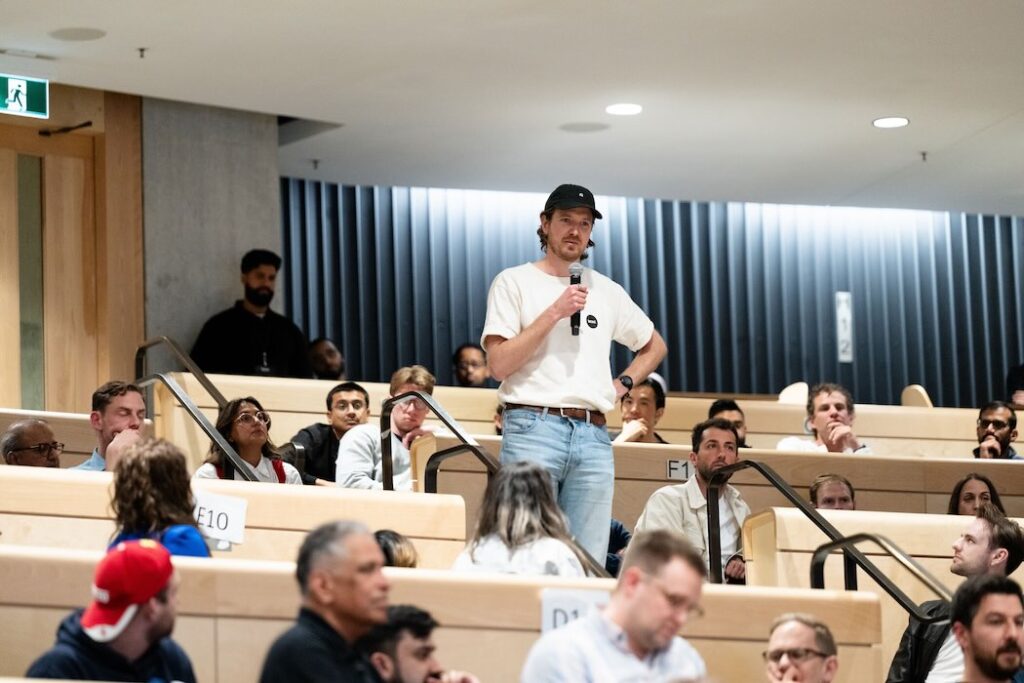
Following the event, Elijah Kurien, a software engineering student at the University of Waterloo, said on X (formerly Twitter), “Nowhere in the world will you find a tech community that can rally themselves together like the Toronto tech community at BetaKit last night.”
Though it was hosted in Toronto, the BetaKit Town Hall featured attendees from all over Canada, including representation from the Yukon, British Columbia, Québec, and across Ontario, including many from the Kitchener-Waterloo area.
Sylvia Ng, CEO at ReturnBear, added on LinkedIn, “It was a great reminder that we all have a role to play in fostering innovation in the next generation of Canadians.”
Turning energy into action
In-person and online, numerous attendees acknowledged that it is one thing to meet up in person, but for the Canadian tech community to grow and thrive, more people need to put their time and money where their mouth is to create lasting change.
Spacebar founder Daniel Armitage told BetaKit that he had a sense that there’s a “small fire” of change in local tech. He has noticed a rise in community-focused events, which he thinks reflects a desire to build a more cohesive tech community.
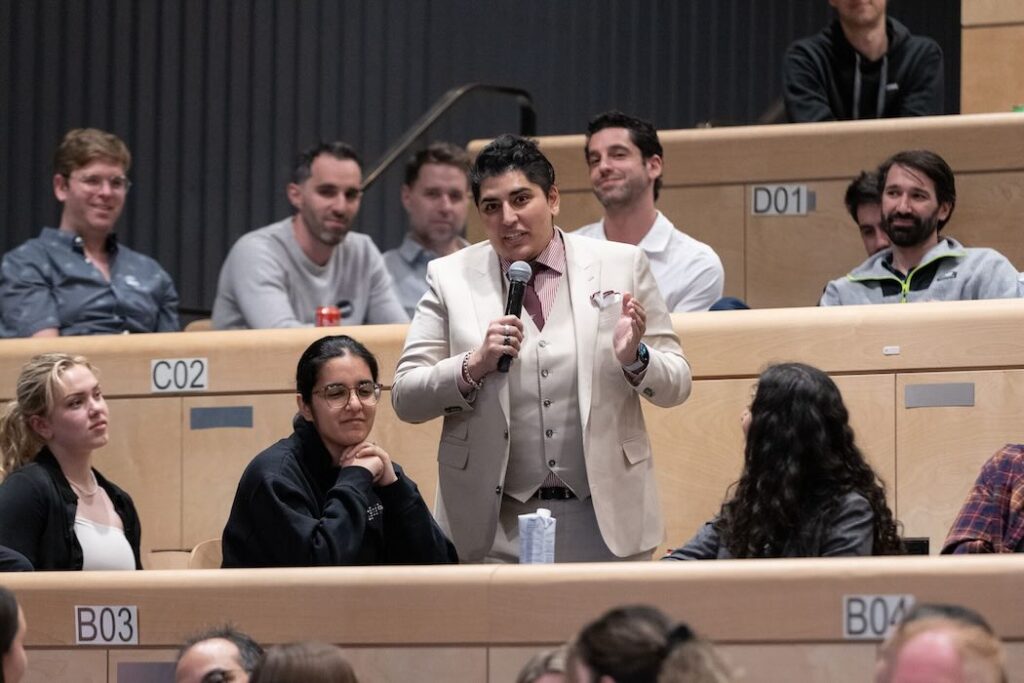
What remains to be determined is whether the energy, enthusiasm, and conversation present at events like the BetaKit Town Hall will be converted into positive action. Armitage was not the only attendee who expressed skepticism this would happen, along with hope that it does.
Others echoed this sentiment, including Highline Beta founding partner Ben Yoskovitz, who warned on X after the BetaKit Town Hall not to get “caught up in the hype [without] appreciating the need for actual hard conversations.”
The venture capitalist noted that compared to the United States, too few early-stage investors in Canada are writing first cheques. This, along with the investors failing to tell founders they genuinely believe in them, is one of the many factors holding back Canadian tech, Yoskovitz believes.
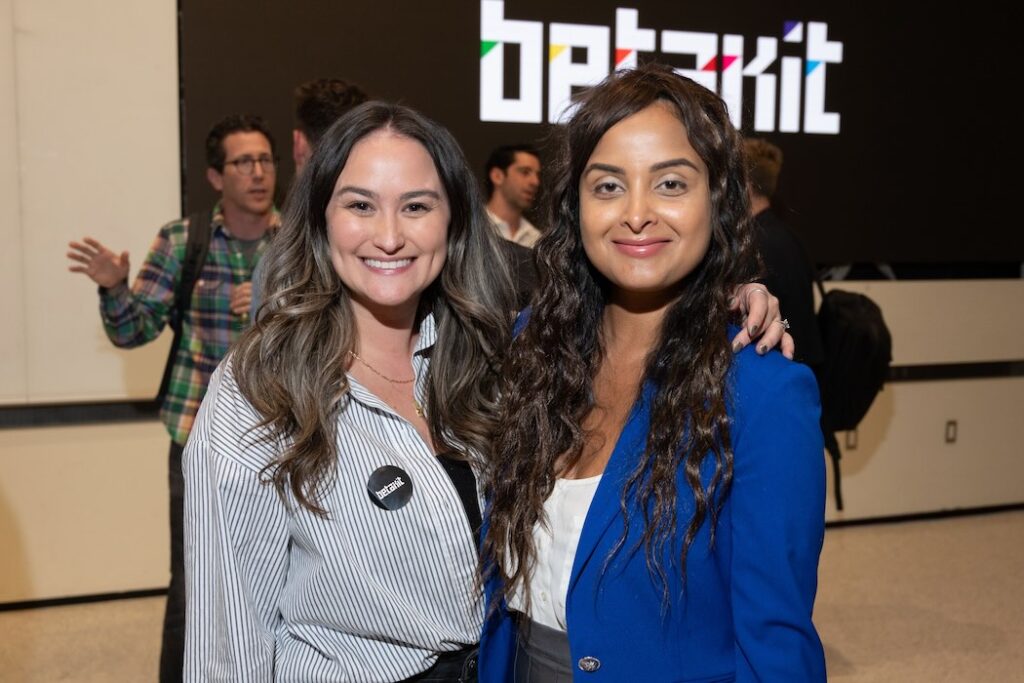
“The lack of great Canadian startups (in any real volume) is a multi-factor issue,” said Yoskovitz. “It’s not just about funding, but shitting on people who say there’s a lack of funding is stupid. There is. And it does slow innovation down in Canada.”
Yoskovitz emphasized that a tech ecosystem needs lots of components to succeed, from great talent interested in starting companies to mentors paying it forward, early-stage capital, programming, customers, acquirers, and more. “To win you need a complete/robust ecosystem, which means every part of the system has to be strong.”
Going for gold
At the main event for the night, Shopify founder and CEO Tobias Lütke spoke extensively about why the Canadian tech sector needs to aim higher, arguing that Canada suffers from a “go-for-bronze” culture that often lacks courage and ambition.
During his fireside chat with BetaKit board chair and Good Future co-founder Satish Kanwar, Lütke made the case for targeting gold medals. “There’s less competition if you reach higher,” he added. Many attendees latched onto this idea.
For Ada’s Murchison, Lütke’s words resonated. “I think now is the time for us to answer, ‘What does it really mean to have courage?’” Murchison told BetaKit.
RELATED: Watch: Shopify’s Tobi Lütke fireside and AMA with Satish Kanwar
Fatima Yusuf, founder and CEO of ImagineCreate AI, told BetaKit that she has spent time in Toronto as well as fellow tech hotspots like New York and San Francisco. In the latter two cities, she learned about the power of tech being “ambitious.”
Canada should not see itself as a small player in the global tech ecosystem, but instead drum up the “courage” to find its own identity, Yusuf argued.
Canada Learning Code co-founder and CEO Melissa Sariffodeen said on X that her “overwhelming takeaway” from the BetaKit Town Hall was that, “In Canada, we are playing too small. We have to reach higher.”
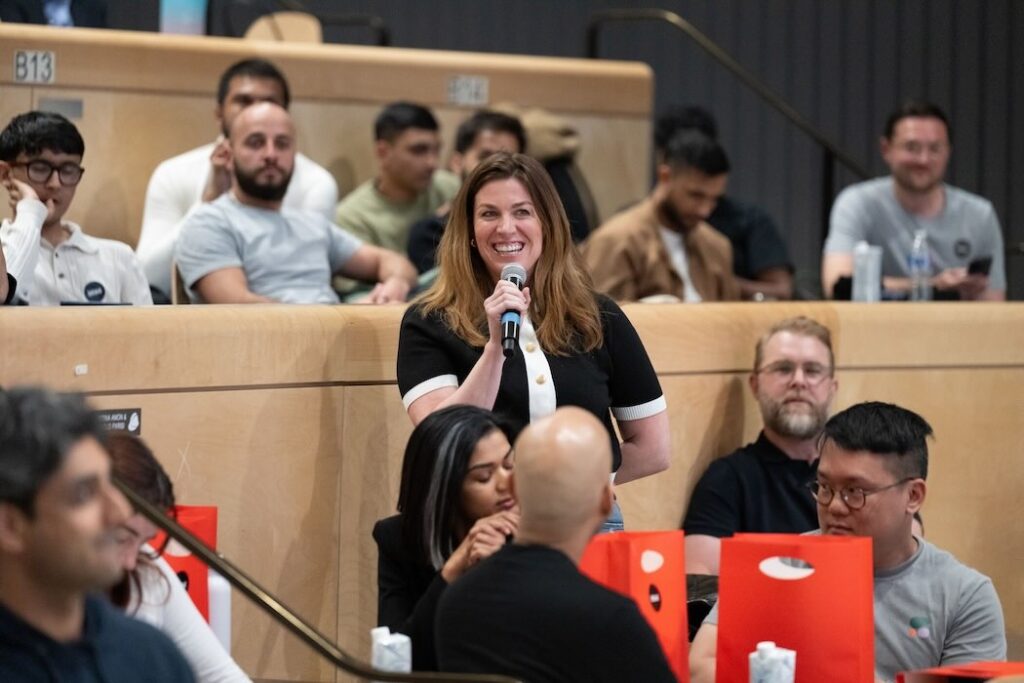
Voiceflow co-founder and CEO Braden Ream echoed this assertion to BetaKit, arguing that Canadian tech has become too used to soft landings, and should target bigger exits more often.
Knix founder and president Joanna Griffiths said no one wants to win bronze. “So how do we as a collective strive for gold more often and, once we have had success, how do we pay it forward for the community?”
The capital gains tax brouhaha
The federal government’s proposed changes to the capital gains tax set off a firestorm within the ecosystem when Ottawa unveiled Budget 2024 last month. While this response was certainly not the only reason that prompted the BetaKit Town Hall, it was a contributing factor.
During his fireside chat, Lütke compared the changes to levies on cigarettes to illustrate his point that governments usually put higher prices on activities it is seeking to discourage. “To tax innovation, you’ll see the same thing.”
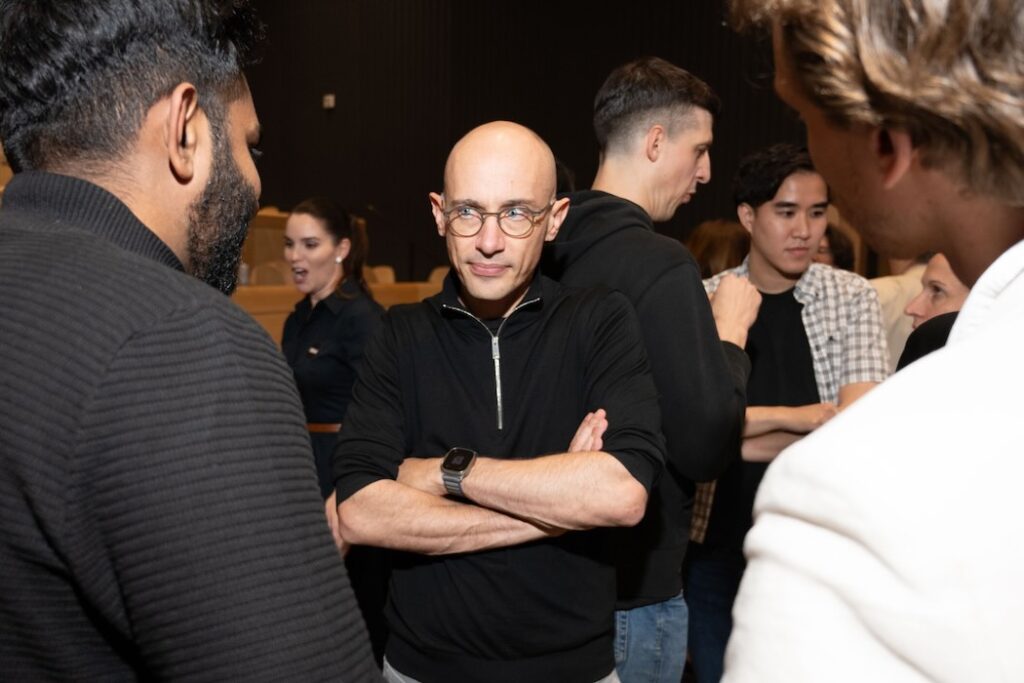
Not everyone agreed with the Shopify CEO’s assertion, however, including Tulip Retail and Transformer Lab founder Ali Asaria. During his panel discussion with BetaKit editor-in-chief Douglas Soltys, Asaria referenced a recent survey that found most Canadians supported the capital gains tax inclusion rate hike despite age, geography, or political affiliation, noting that for many Canadians, the housing costs that this hike is supposed to help fund efforts to address are the top priority.
“I don’t know if we realize how we are being perceived if we’re all coming together on this one issue,” Asaria said. “Tech is presenting itself as existing in a bubble.”
For Hypercare co-founder and CEO Albert Tai, Asaria’s comments resonated. Tai noted to BetaKit that Toronto tech startups used to be able to attract talent despite lower wages than San Francisco firms because it was cheaper to live here, but said rising housing costs have changed that.
RELATED: Watch: Vantage points panel with four Canadian tech founders
Yoskovitz of Highline Beta said that “communities need rallying cries” but “instigating it over the capital gains tax stuff is silly [in my opinion], although I appreciate that taxing innovation isn’t great.”
After the BetaKit Town Hall, Communitech CEO Chris Albinson conceded that the federal government didn’t fully understand the impacts its proposals would have, but argued that it had not received enough credit for implementing the Canadian Entrepreneurs’ Incentive “explicitly to help the innovation economy.”
The fact that capital gains were excluded from the feds’ Budget 2024 motion bill indicates that there may be a window of opportunity for tech to advocate for additional change, he said.
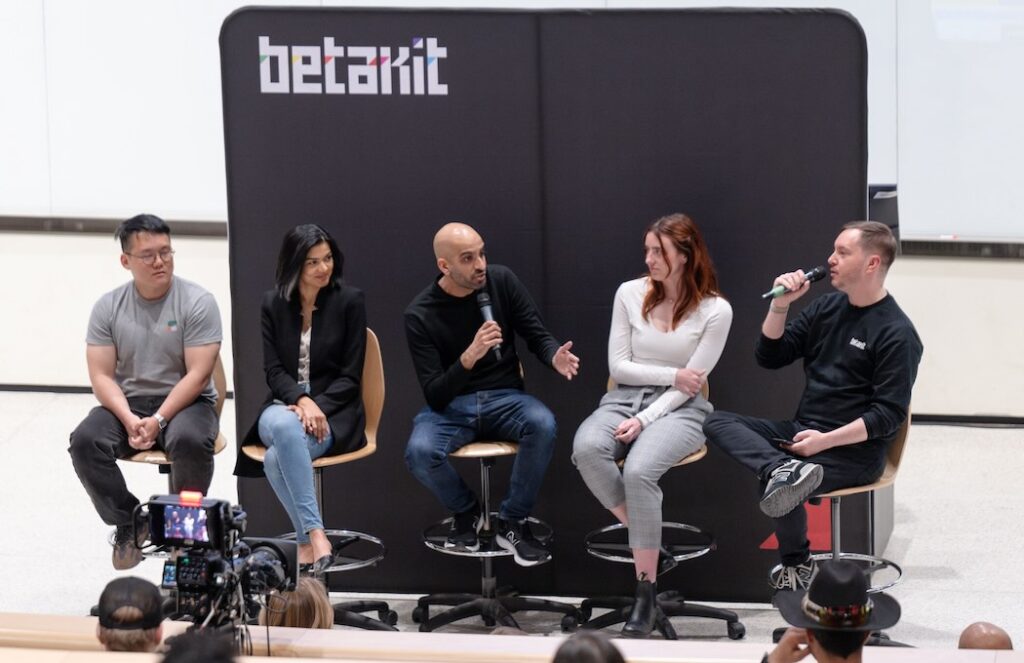
Growclass founder and CEO Sarah Stockdale told BetaKit that she supports paying taxes to contribute towards social programs, but argued that the capital gains tax changes are not the right way to go about raising taxes because it will limit innovation. As well, the changes could prevent founders from entering higher tax brackets, which would consequently impact their ability to pay for those very social programs, she argued.
Channelling the frustration that many leaders across the Canadian tech ecosystem have expressed about Canada’s approach to innovation policy and its inability to follow through on past promises, one founder argued that the time for being polite is over.
Speaking with BetaKit on background, the founder argued that if Canadian tech startups are displeased with federal policies, it is imperative they take more aggressive action to ensure those concerns are heard by policymakers.
Building great products and paying it forward
When asked what the Canadian tech ecosystem’s competitive advantage should be, one answer put forth by Lütke and supported by many other attendees is for Canadian tech founders to simply focus on building more great “world-class” products. “If you give me the genie wish, I’m going to go for deeply caring, insightful, exacting craftsmanship. Because, if I get to swing a wand and just get it, and I make it that, we will win, any day of the week.”
“I think he’s right and we should hold each other to a higher bar by buying each others’ things and giving each other the hard, but necessary feedback to make Canada the Bauhaus of software,” Ada co-founder David Hariri posted on X following the event.
To support those builders, Keyflow co-founder and CEO Millin Gabani argued on X that the ecosystem needs more targeted resources and events for them, like hackathons and demos.
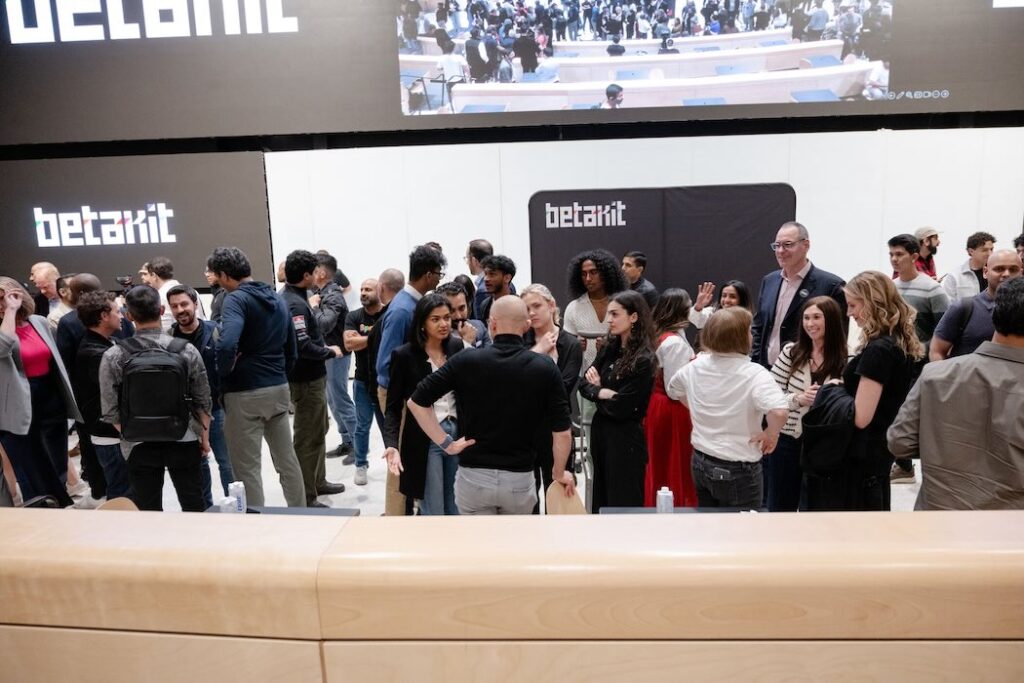
Another thing that needs to happen, multiple attendees argued, is more successful Canadian tech folks must pay it forward. Griffiths emphasized the importance of this. For Armitage, action means helping other founders and making space for them. For Tai, more people need to teach other things.
At the end of the panel, Socratica’s Jocelyne Murphy, who is also a University of Waterloo student studying systems design engineering, pleaded for the old heads across the ecosystem to invest their time and energy into going out and engaging with younger founders and tech workers, particularly after the pandemic moved work and schooling online. “If there’s people that know that we’re here, we’ll want to stay [in Canada],” Murphy said, through tears.
Her sentiments had an impact on Growclass’ Stockdale. “She just reminded us why this kind of thing is necessary and why we need to do it in spaces where we can include those that don’t get access to this kind of network,” Stockdale told BetaKit after the panel.
“She just made me want to host a bunch of stuff and build community with young people building stuff.”
With files from Alex Riehl and Douglas Soltys.
All photography courtesy Mauricio J Calero for BetaKit.

